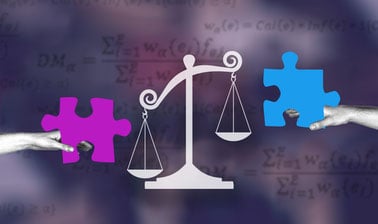- Level Foundation
- المدة 46 hours
- الطبع بواسطة Delft University of Technology
- Total students 1,203 enrolled
-
Offered by

عن
In an increasingly data-driven world, data and its use aren't always all it's cracked up to be. This course aims to explain how expert opinion can help in many areas where complex decisions need to be made.
For instance, how can you predict volcano activity when no eruptions have been recorded over a long period of time? Or how can you predict how many people will be resistant to antibiotics in a country where there is no available data at national level? Or how about estimating the time needed to evacuate people in flood risk areas?
In situations like these, expert opinions are needed to address complex decision-making problems. This course will show you the basics of various techniques that use expert opinion for uncertainty quantification. These techniques vary from the informal and undocumented opinion of one expert to a fully documented and formal elicitation of a panel of experts, such as the Classical Model (CM) or Cooke's method, which is arguably the most rigorous method for performing Structured Expert Judgment.
CM, developed at TU Delft by Roger Cooke, has been successfully applied for over 30 years in areas as diverse as climate change, disaster management, epidemiology, public and global health, ecology, aeronautics/aerospace, nuclear safety, environment and ecology, engineering and many others.
What you will learn
By the end of the course all learners will be able to:
- Recognize when and in which settings the Classical Model (CM) can be used for performing Structured Expert Judgment
- Understand when to account for uncertainty assessments in complex decision-making context when data pose issues
- Know how CM can be used to analyze expert data and obtain answers to questions of interest
- Explore an optional IDEA Protocol module, which uses a different method of performing Structured Expert Judgment.
Verified learners will have the added benefit of being able to:
- Get an in-depth perspective on the CM method theory
- Access optional modules about dependence elicitation and eliciting probabilities.
Skills you learn
Syllabus
WEEK 1: Why and when to use SEJ?
WEEK 2: Statistical accuracy (calibration) and information score
WEEK 3: Performance-based weights and the Decision Maker
WEEK 4: Data analysis
WEEK 5: Applications of CM
WEEK 6: Practical matters (biases, experts, elicitation)
Auto Summary
Unlock the power of expert opinion in complex decision-making with this foundation course on Structured Expert Judgment. Led by edX, this 46-hour course dives into techniques for uncertainty quantification, including the rigorous Classical Model by TU Delft's Roger Cooke. Ideal for professionals in business, management, and diverse fields like climate change and disaster management, the course offers a professional subscription for comprehensive learning.

Tina Nane

Anca Hanea

Roger Cooke


